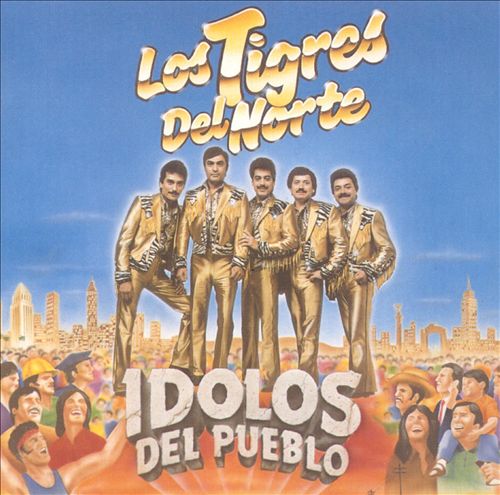
NorteñoBlog has been of two minds about Las Bandas Románticas de América, the annual compilation of lovey-dovey banda hits (and “hits”) released by either Fonovisa or Disa Records, the two norteño tentacles of el pulpo gigante known as Universal Music Latin Entertainment. The first mind thinks the songs are catchy, and is grateful for the occasion to write the phrase “asymptotically approaching the musical ideal of amor.” The second mind hated asymptotes in high school, thinks 20 straight love ballads is 19 too many, has nightmare fever dreams involving doe-eyed clarinet armies, and has boycotted the series for two years running.
 Resolve is not the Blog’s strong suit. Thus did I find myself washing dishes and listening to the latest in the series, Las Bandas Románticas de América 2017, 20 songs by 10 bands, only some of whom are “hitmakers” in the sense of “being heard anywhere outside this compilation.” I mean, I’m sure they tour. But if you’ve heard “Pedirás Perdón,” a 2015 nonentity by Banda Coraleña, on the radio anywhere in North America, you’re doing better than I am. If you can hum the song without looking it up, you’re doing better than Banda Coraleña. Give ’em this: their cover of Joey Montana‘s “Picky” is adequate! It’s also not included on Las Bandas Románticas de América 2017 — ironic for the least choosy compilation series around.
Resolve is not the Blog’s strong suit. Thus did I find myself washing dishes and listening to the latest in the series, Las Bandas Románticas de América 2017, 20 songs by 10 bands, only some of whom are “hitmakers” in the sense of “being heard anywhere outside this compilation.” I mean, I’m sure they tour. But if you’ve heard “Pedirás Perdón,” a 2015 nonentity by Banda Coraleña, on the radio anywhere in North America, you’re doing better than I am. If you can hum the song without looking it up, you’re doing better than Banda Coraleña. Give ’em this: their cover of Joey Montana‘s “Picky” is adequate! It’s also not included on Las Bandas Románticas de América 2017 — ironic for the least choosy compilation series around.
But you do get some good songs. As previously discussed, La Séptima Banda released some fine singles in 2016, two of which — the swinging ’50s sock hop “Yo Si Me Enamoré” and the irrepressibly bouncy “Se Va Muriendo Mi Alma” — are here. You also get Banda Los Recoditos’ current hit “Me Está Tirando El Rollo,” featuring some syncopated tuba bass that’s a primo distante of “Stand By Me,” and Samuel Sarmiento, the singer who isn’t Luis Angel Franco. Banda El Recodo‘s remake of “Mujer Mujer” keeps growing on me. Banda Rancho Viejo is, for NorteñoBlog’s money, the best banda working and always worth hearing. Their tune “Mil Veces Te Quiero” was also ignored by radio, and it’s from freaking 2014, but it combines an echoing triple-voiced hook and gang shouts with one of the struttingest grooves in all of bandaland. (Plus, more ’50s sock hop imagery in the video. Thinkpieces go!) A tardy Pick to Click.



















